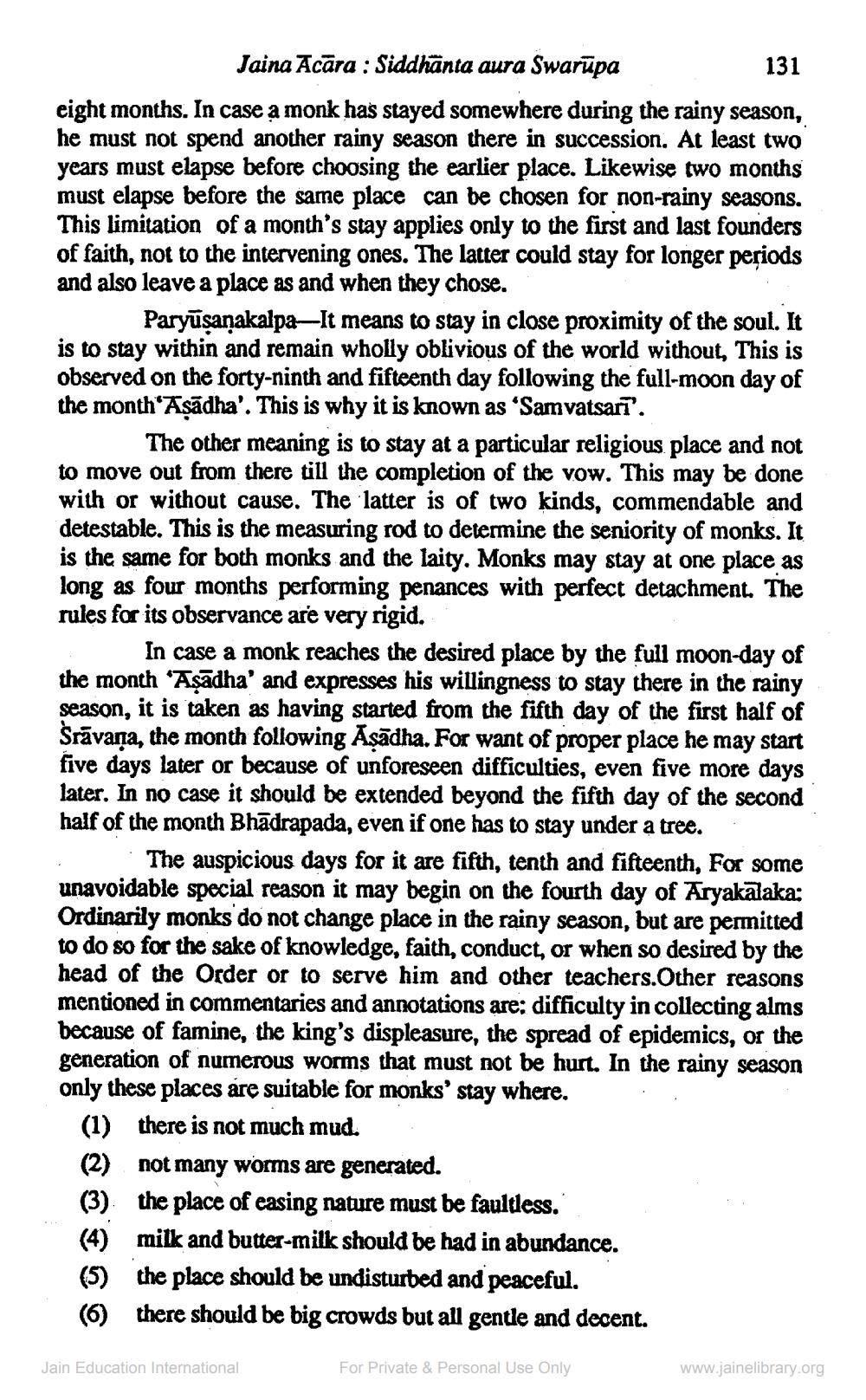________________
Jaina Acara: Siddhanta aura Swarupa
131 eight months. In case a monk has stayed somewhere during the rainy season, he must not spend another rainy season there in succession. At least two years must elapse before choosing the earlier place. Likewise two months must elapse before the same place can be chosen for non-rainy seasons. This limitation of a month's stay applies only to the first and last founders of faith, not to the intervening ones. The latter could stay for longer periods and also leave a place as and when they chose.
Paryuṣaṇakalpa-It means to stay in close proximity of the soul. It is to stay within and remain wholly oblivious of the world without, This is observed on the forty-ninth and fifteenth day following the full-moon day of the month Aṣādha'. This is why it is known as 'Samvatsarī.
The other meaning is to stay at a particular religious place and not to move out from there till the completion of the vow. This may be done with or without cause. The latter is of two kinds, commendable and detestable. This is the measuring rod to determine the seniority of monks. It is the same for both monks and the laity. Monks may stay at one place as long as four months performing penances with perfect detachment. The rules for its observance are very rigid.
season,
In case a monk reaches the desired place by the full moon-day of the month 'Aṣadha' and expresses his willingness to stay there in the rainy is taken as having started from the fifth day of the first half of Srāvana, the month following Aṣādha. For want of proper place he may start five days later or because of unforeseen difficulties, even five more days later. In no case it should be extended beyond the fifth day of the second half of the month Bhadrapada, even if one has to stay under a tree.
The auspicious days for it are fifth, tenth and fifteenth, For some unavoidable special reason it may begin on the fourth day of Aryakalaka: Ordinarily monks do not change place in the rainy season, but are permitted to do so for the sake of knowledge, faith, conduct, or when so desired by the head of the Order or to serve him and other teachers.Other reasons mentioned in commentaries and annotations are: difficulty in collecting alms because of famine, the king's displeasure, the spread of epidemics, or the generation of numerous worms that must not be hurt. In the rainy season only these places are suitable for monks' stay where.
(1) there is not much mud.
(2) not many worms are generated.
(3) the place of easing nature must be faultless.
(4) milk and butter-milk should be had in abundance.
(5) the place should be undisturbed and peaceful. (6) there should be big crowds but all gentle and decent.
Jain Education International
For Private & Personal Use Only
www.jainelibrary.org




